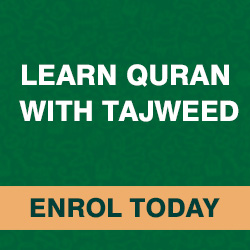Islam has taught us how to conduct ourselves in all aspects of our lives. Be it celebrating the birth of a child, grieving the death of a loved one or praying Islam has taught us the correct way of doing things, the way which is pleasing to Allah.
We eat food to nourish our bodies, in order to live our lives. The food and drink we choose to consume, as well as the way in which it is eaten has an effect on our conduct and health. The phrase ‘You are what you eat’ is not one void of truth. Islam places emphasis on eating in a way which is humble, thankful to Allah and considerate to our bodies. Below are a few narrations highlighting the manner in which a Muslim should eat and drink as well as what he or she should eat and drink.
The below list is by no means exhaustive, but rather just a guide on the issue.
1. To eat what is Halal (permissible to consume in Islam) and Tayyib (wholesome)
Allah’s messenger peace be upon him mentioned ‘ O people! Allah is certainly pure and only accepts what is pure, Allah has ordered the believers with what he has ordered the prophets and has said ‘O Messengers! Eat pure wholesome foods and do good actions, I am certainly aware of what you do. Allah has mentioned (in another portion of the Quran) O you who believe! Eat from the pure and wholesome food we have given to you.’ After this the prophet of Allah peace be upon him made mention of an individual as an example. This individual is on a long journey, with dishevelled hair and a dusty body, raising his hands to the sky and praying to Allah saying O my Lord! O my Lord! However is eating is impermissible, his drinking is impermissible, his clothing is impermissible and he has been nourished with an impermissible morsel, how can then his supplication be accepted? (1) (Muslim)
From this narration we learn many things. An individual who fulfils the criteria for his supplication to be accepted has his supplication rejected because he has eaten something which was not Halal.
2. To not waste food
It is estimated the we in the U.K waste approximately 7 million tonnes of food each year.(2)
Wasting food or anything else for that matter is a sign of ungratefulness to Allah. If food can be eaten it should not be wasted. Allah mentions in the Quran ‘Eat and drink but do not waste, Allah certainly does not love those who waste’ (7:31)
3. To eat less
Allah’s messenger peace be upon him has said ‘No human has filled a container worse than his stomach. An individual should only consume enough morsels of food to keep his back straight, but if he is adamant on eating more than the maximum should be one third of his stomach for food, one third for water and one third left empty for breathing space.(Tirmidhi) (3)
4. To eat with 3 fingers or 4 if need be
Ka’b ibn Malik narrates that the messenger of Allah peace be upon him would eat with 3 fingers. (Muslim)(4)
The harms of overeating are many. Eating a lot of food does not give one more energy, rather it strains the digestive system and food is left undigested. The harms are not only physical but also spiritual, making one feel lazy in worshiping Allah.
5. To lick one’s fingers or allow them to be licked
The messenger of Allah peace be upon him has said ‘When one of you eats he should not wipe his fingers until he has licked them or has them licked by another’. (Bukhari)(5)
The act of licking someone else’s finger has become a rarely practiced Sunnah. Licking the fingers also shows us how particular we should be in not wasting food, even the food left on our fingers should be consumed.
6. To eat a morsel which has fallen
The messenger of Allah peace be upon him has mentioned ‘When a morsel falls down from anyone of you he should (pick it up), remove anything harmful from it and eat it, he should not leave it for Shaytan (The devil). (Muslim)(6)
7. To lick the plate
Continuing from the above the Hadith, the narrator says that messenger of Allah ordered us to lick the plate with the fingers and commented ‘As you do not know in which part of the food there is blessings’.
From the above three points it is clear how much emphasis Islam places on not wasting food, to the extent that the food left over on the plate and fingers should be eaten as well as any morsel which has fallen.
1. عَنْ أَبِي هُرَيْرَةَ، قَالَ: قَالَ رَسُولُ اللهِ صَلَّى اللهُ عَلَيْهِ وَسَلَّمَ: ” أَيُّهَا النَّاسُ، إِنَّ اللهَ طَيِّبٌ لَا يَقْبَلُ إِلَّا طَيِّبًا، وَإِنَّ اللهَ أَمَرَ الْمُؤْمِنِينَ بِمَا أَمَرَ بِهِ الْمُرْسَلِينَ، فَقَالَ: {يَا أَيُّهَا الرُّسُلُ كُلُوا مِنَ الطَّيِّبَاتِ وَاعْمَلُوا صَالِحًا، إِنِّي بِمَا تَعْمَلُونَ عَلِيمٌ} [المؤمنون: 51] وَقَالَ: {يَا أَيُّهَا الَّذِينَ آمَنُوا كُلُوا مِنْ طَيِّبَاتِ مَا رَزَقْنَاكُمْ} [البقرة: 172] ثُمَّ ذَكَرَ الرَّجُلَ يُطِيلُ السَّفَرَ أَشْعَثَ أَغْبَرَ، يَمُدُّ يَدَيْهِ إِلَى السَّمَاءِ، يَا رَبِّ، يَا رَبِّ، وَمَطْعَمُهُ حَرَامٌ، وَمَشْرَبُهُ حَرَامٌ، وَمَلْبَسُهُ حَرَامٌ، وَغُذِيَ بِالْحَرَامِ، فَأَنَّى يُسْتَجَابُ لِذَلِكَ؟ “(مسلم، بَابُ قَبُولِ الصَّدَقَةِ مِنَ الْكَسْبِ الطَّيِّبِ وَتَرْبِيَتِهَا، ح/١٠١٥)
2. http://www.lovefoodhatewaste.com/node/2472
3. عَنْ مِقْدَامِ بْنِ مَعْدِي كَرِبَ، قَالَ: سَمِعْتُ رَسُولَ اللهِ صَلَّى اللَّهُ عَلَيْهِ وَسَلَّمَ يَقُولُ: مَا مَلأَ آدَمِيٌّ وِعَاءً شَرًّا مِنْ بَطْنٍ. بِحَسْبِ ابْنِ آدَمَ أُكُلاَتٌ يُقِمْنَ صُلْبَهُ، فَإِنْ كَانَ لاَ مَحَالَةَ فَثُلُثٌ لِطَعَامِهِ وَثُلُثٌ لِشَرَابِهِ وَثُلُثٌ لِنَفَسِهِ (الترمذي، بَابُ مَا جَاءَ فِي كَرَاهِيَةِ كَثْرَةِ الأَكْلِ، ح/٢٣٨٠)
4. عَنِ ابْنِ كَعْبِ بْنِ مَالِكٍ، عَنْ أَبِيهِ، قَالَ:كَانَ رَسُولُ اللهِ صَلَّى اللهُ عَلَيْهِ وَسَلَّمَ يَأْكُلُ بِثَلَاثِ أَصَابِعَ (مسلم، بَابُ اسْتِحْبَابِ لَعْقِ الْأَصَابِعِ وَالْقَصْعَةِ، وَأَكْلِ اللُّقْمَةِ السَّاقِطَةِ بَعْدَ مَسْحِ مَا يُصِيبُهَا مِنْ أَذًى، وَكَرَاهَةِ مَسْحِ الْيَدِ قَبْلَ لَعْقِهَا، ح/٢٠٣٢)
5.عَنِ ابْنِ عَبَّاسٍ: أَنَّ النَّبِيَّ صَلَّى اللهُ عَلَيْهِ وَسَلَّمَ قَالَ:إِذَا أَكَلَ أَحَدُكُمْ فَلاَ يَمْسَحْ يَدَهُ حَتَّى يَلْعَقَهَا أَوْ يُلْعِقَهَا (بخاري، بَابُ لَعْقِ الأَصَابِعِ وَمَصِّهَا قَبْلَ أَنْ تُمْسَحَ بِالْمِنْدِيلِ، ح/٥٤٥٦)
6. عَنْ أَنَسٍ، أَنَّ رَسُولَ اللهِ صَلَّى اللهُ عَلَيْهِ وَسَلَّمَ َقَالَ:إِذَا سَقَطَتْ لُقْمَةُ أَحَدِكُمْ فَلْيُمِطْ عَنْهَا الْأَذَى وَلْيَأْكُلْهَا، وَلَا يَدَعْهَا لِلشَّيْطَانِ وَأَمَرَنَا أَنْ نَسْلُتَ الْقَصْعَةَ، قَالَ: فَإِنَّكُمْ لَا تَدْرُونَ فِي أَيِّ طَعَامِكُمُ الْبَرَكَةُ (مسلم، بَابُ اسْتِحْبَابِ لَعْقِ الْأَصَابِعِ وَالْقَصْعَةِ، وَأَكْلِ اللُّقْمَةِ السَّاقِطَةِ بَعْدَ مَسْحِ مَا يُصِيبُهَا مِنْ أَذًى، وَكَرَاهَةِ مَسْحِ الْيَدِ قَبْلَ لَعْقِهَا، ح/٢٠٣٤)

 Songs make hypocrisy grow in the heart just as water makes crops grow
Songs make hypocrisy grow in the heart just as water makes crops grow 
















